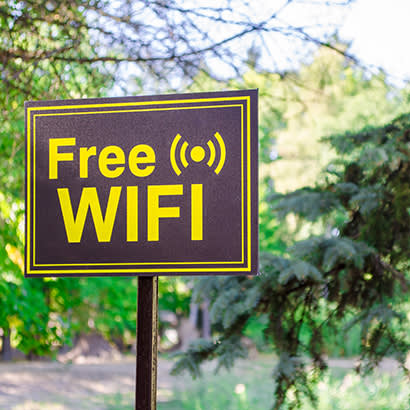
For an enhanced digital experience, read this story in the ezine.
When I returned to my hometown of Oakland, California, to lead the park and recreation department, I quickly revealed my two priorities: to neutralize disparities that plagued certain neighborhoods and communities, and to laser focus the department’s attention on the seemingly most neglected, Oakland youth.
Successfully shifting focus and charting new paths was not an easy task, but I brought the entire organization together to help build substance around my vision of equity and access. The process to create new vision, mission and strategic directions for an organization that was struggling to remain valuable in an urban city, complete with all urban city problems, was methodical and inclusive, as we met and engaged with every level of the department. After months of talking with staff, asking the tough questions, recognizing the built-in strength of the organization, and painfully uncovering the organizational shortcomings, a new department, Oakland Parks, Recreation and Youth Development (OPRYD), was born:
With an emphasis on Oakland’s youth, Oakland Parks, Recreation and Youth Development and its partners will provide best-in-class, relevant and equitable programs and services, while meeting the specific needs of people and communities both at the neighborhood level and regionally throughout the City of Oakland. We achieve this mission through intentional engagement and by removing the barriers that prohibit equitable opportunities for all.
Partners
We quickly recognized that we are not alone in this work and that collaborations and partnerships would not only add needed resources, but more importantly, increase the value of the programs by bringing in professionals and experts in certain areas of youth development.
Meeting the Specific Needs
No two communities are alike, and with that the needs and/or desires of a particular neighborhood varies geographically. However, what was most important to us is that the offerings and experience of any one particular neighborhood should never be less than that of another.
Intentional Engagement
The days of sitting at the front desk of the facility and waiting for the community to come in and engage are long gone. We had to go out into our communities, knock on doors, hold up signs and wave at passersby, host community forums with food and daycare services — whatever it took to let as many people know about our programs and services. And, asking them what we could do to include them proved vital to the ongoing successes of the department.
Removing the Barriers
Specifically addressing fees, accessibility, language, transportation, the location of current amenities, the placement of new capital projects, current usage, and, just as important, who is not participating and why, OPRYD began to change operations and shift procedures. If we couldn’t remove some of these disparities, we needed to find a way to lift our communities over and/or around them so they felt welcomed to engage with us.
With this new mission and direction, we completely revamped our summer camp and after-school offerings and created our signature programs: Town Camp, Oakland’s summer youth program, and Neighborhood Town Camp, an out-of-school time youth engagement program. Since its inception, Town Camp boasts the following:
- Participation has more than doubled with an average of 1,000 to 1,200 participants daily during summer and 800 to 1,000 youth daily afterschool.
- We have engaged more than 100 partners to increase program offerings and value.
- Becoming an attractive investment, we have leveraged more than $2 million in donations.
- We have standardized meals and curriculum to address disparities.
- We have dedicated time daily for reading and math proficiency reinforcement.
- We provide nutritious, high-quality meals for all program participants.
With the onset of coronavirus (COVID-19) in March 2020, OPRYD believed it realized its full value to our communities, as we saw record numbers of new park users looking to find both physical and mental reprise in our parks and green spaces. Even through chaos and uncertainty, our doors remained open, and we prioritized providing basic needs to our kids and our communities. While some of our children struggled to participate in online learning, we created Lift Zones, community Wi-Fi hubs, to make sure everyone had access to quality, high-speed and safe internet connections. We also gifted 1,000 laptops to students in need, courtesy of our partnership with Comcast. We provided more than 2 million hot meals, up to 2,500 a day, throughout our community centers thanks to our partnership with World Central Kitchen. And, Stephen and Ayesha Curry’s Eat.Learn.Play. Foundation provided a pair of brand-new Curry sneakers to every child registered in our programs. We tutored students to assist with homework; provided outdoor fitness, dance and Zumba classes to make sure communities had access to physical fitness and wellness; and used our centers as community resource hubs, making sure families had food, diapers, toiletries and other necessities.
Reinventing ourselves, focusing our resources and efforts, and reimagining what parks and recreation could/should be, OPRYD remains resilient, trusted, community engaged and equity focused. To learn more about our past five years, take a look at a detailed report of accomplishments and milestones.
J. Nicholas Williams Sr. is former Director of Oakland Parks, Recreation and Youth Development and current Superintendent for Recreation and Community Services for San Francisco City and County.


